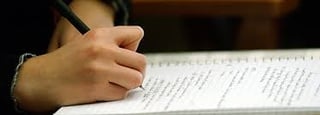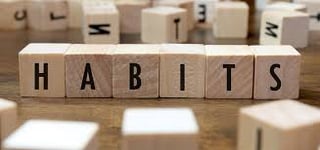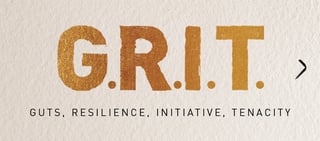We all know that in order to acquire a new skill we have to practice. Anytime we want to learn something new in school, it requires practice as well. However, some...
Improving Academic PerfORMANCE
Learn how to improve yourself through targeted learning and improved study skills.
Posts about improving academic performance:
Teaching Compassion to Students and Why It's Important
 When it comes to education, reading, writing, and ‘rithmetic, used to take center stage and were the standard menu of what was taught to students starting in elementary school. Over time subjects like social studies and history, the applied sciences, and arts and culture were added to the list. In today’s world of education, where students are exposed to seemingly endless cascades of information and are coming to terms with growing up in a world highly affected by globalization, such subjects as community outreach, service learning, and multicultural units are sought after, even in the lower grades.
When it comes to education, reading, writing, and ‘rithmetic, used to take center stage and were the standard menu of what was taught to students starting in elementary school. Over time subjects like social studies and history, the applied sciences, and arts and culture were added to the list. In today’s world of education, where students are exposed to seemingly endless cascades of information and are coming to terms with growing up in a world highly affected by globalization, such subjects as community outreach, service learning, and multicultural units are sought after, even in the lower grades.
Bottom line? Students are learning a lot.
All subject areas have their place and offer significant development and exploration for students of all ages; as education continues to develop and change and schools attempt to foster more community-focused and united environments, subjects like mindfulness and compassion have gained popularity. So what happens when we explore teaching students concepts like kindness, mindfulness, and compassion, as courses themselves? Let’s dive in.
Note Taking and Memory: Put Down the Pen!
 Note-taking, once the activity de rigueur of learning and memorizing facts and new information, and an activity that certainly appears, well, active, is fast becoming replaced with newer forms of active engagement. Taking notes has long been lauded as a tried and true approach to memory and retention, as well as the best option for having recorded documents with which to refer after an initial discussion, but note-taking in and of itself might not be the best strategy available and can often become its own mindless, passive, or even distracting activity. Instead, active listening with a more strategic approach to obtaining information allows the brain to stay focused on the lecture while still capturing highlights and overarching ideas.
Note-taking, once the activity de rigueur of learning and memorizing facts and new information, and an activity that certainly appears, well, active, is fast becoming replaced with newer forms of active engagement. Taking notes has long been lauded as a tried and true approach to memory and retention, as well as the best option for having recorded documents with which to refer after an initial discussion, but note-taking in and of itself might not be the best strategy available and can often become its own mindless, passive, or even distracting activity. Instead, active listening with a more strategic approach to obtaining information allows the brain to stay focused on the lecture while still capturing highlights and overarching ideas.
Five Tips to Prepare for Exams
 As you move into the end of a semester, the pressure of exams can daunt even the most successful students. It’s a busy time of year in general, and the mounting strain of a large looming test can feel outright agonizing! Fear not. Here is a list of go-to tips to help you be your most prepared and confident self going into those final exams (or any tests, at any time!)
As you move into the end of a semester, the pressure of exams can daunt even the most successful students. It’s a busy time of year in general, and the mounting strain of a large looming test can feel outright agonizing! Fear not. Here is a list of go-to tips to help you be your most prepared and confident self going into those final exams (or any tests, at any time!)
Using the Science of Habits to Improve Performance in School: Part II
 In a previous article on the power of habits, we discussed how habits are a tool our brains use to be more efficient. Instead of consciously analyzing every situation, thinking about various courses of action, and then deciding what to do, we use habits to automatically do this or that to save time. In theory, this allows us to decide to use our brain power to focus on things that really matter and really do require conscious deliberation. This is sometimes a good and sometimes a bad thing. It’s good when the habit is brushing our teeth each morning and night, or looking both ways before we cross the street. It’s bad when we grab a few cookies without even thinking about it when we are bored, or react negatively to constructive feedback.
In a previous article on the power of habits, we discussed how habits are a tool our brains use to be more efficient. Instead of consciously analyzing every situation, thinking about various courses of action, and then deciding what to do, we use habits to automatically do this or that to save time. In theory, this allows us to decide to use our brain power to focus on things that really matter and really do require conscious deliberation. This is sometimes a good and sometimes a bad thing. It’s good when the habit is brushing our teeth each morning and night, or looking both ways before we cross the street. It’s bad when we grab a few cookies without even thinking about it when we are bored, or react negatively to constructive feedback.
Getting 'Gritty' With It
 Failure ain’t what it used to be. Or, at least, failure is understood differently today, as we examine more closely how much it actually helps us in the long run. When we allow failure and setbacks to be learning experiences and jumping off points for the development of resilience and grit, our lives transform. We refine our character all the more, but like a fine work of art that benefits from revision and reframing. Nowhere is such an experience in growth more valuable and applicable than education.
Failure ain’t what it used to be. Or, at least, failure is understood differently today, as we examine more closely how much it actually helps us in the long run. When we allow failure and setbacks to be learning experiences and jumping off points for the development of resilience and grit, our lives transform. We refine our character all the more, but like a fine work of art that benefits from revision and reframing. Nowhere is such an experience in growth more valuable and applicable than education.
